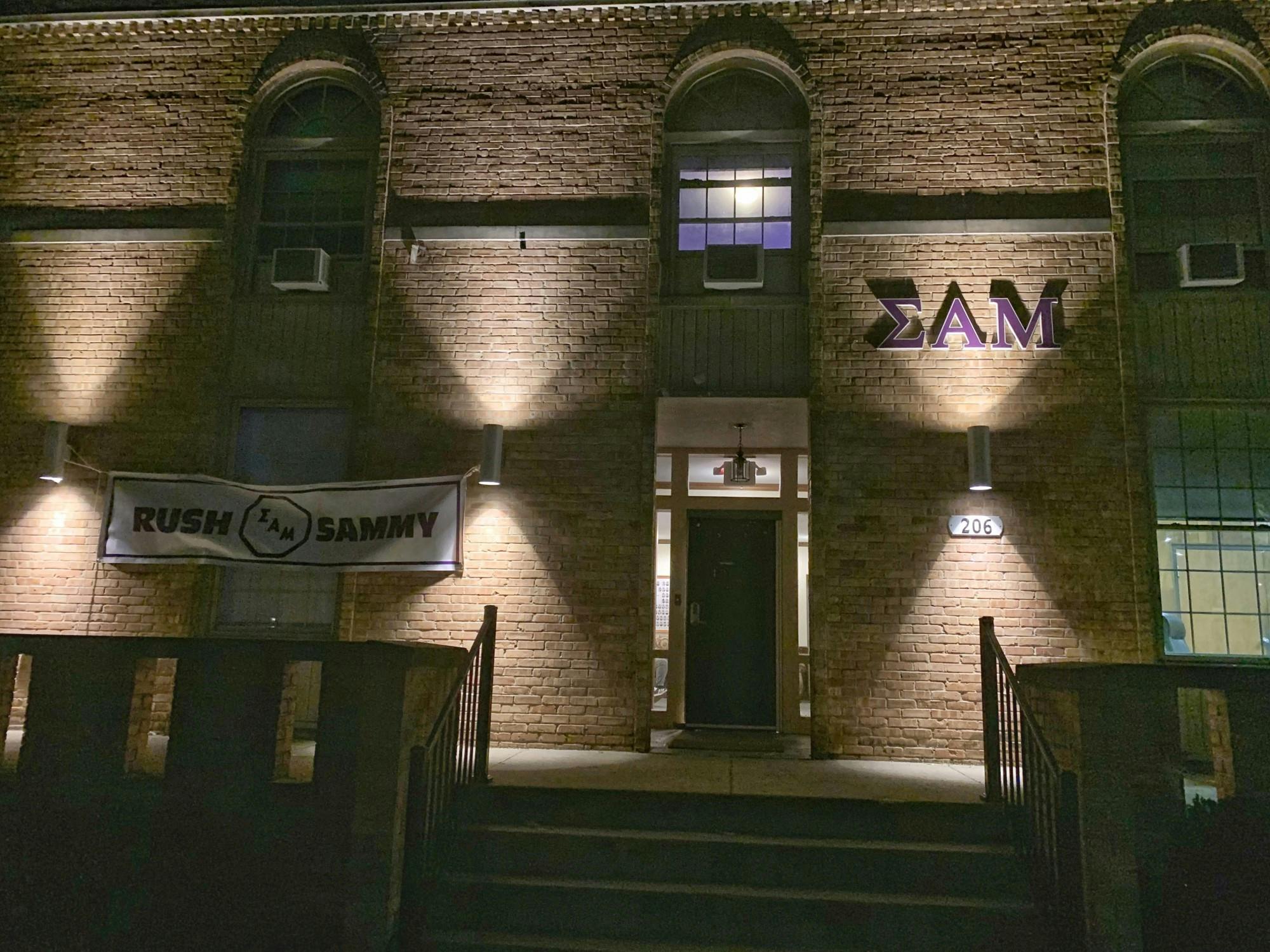Before arriving at Miami University for his first year, biology major Nick Zimmerman heard about the Delta Tau Delta (Delts) hazing incident that resulted in the fraternity's removal from campus.
He wasn’t surprised by it because he personally knows the people involved. Zimmerman grew up with former chapter president Andrew Brinkman and other Delts in Dublin, Ohio.
Zimmerman and many other first-years aren’t worried about the possibility of hazing from the chapters they chose to rush this year.
“I really don’t think it was a fraternity issue. I think it was just a person issue,” Zimmerman said. “Probably not the chapter, just a couple bad people.”
Cliff Alexander Office Director Kim Vance expected parents to be calling her before recruitment with questions and concerns for their sons’ safety. But instead, she said parents are asking, “How can my son get involved?”
Despite expecting lower turn out this year, the Cliff Office reported that 611 students accepted bids from Miami’s fraternities this year, a 13 percent increase from last year’s fraternity rushing class.
Andy Iacobelli, a sophomore finance major who rushed Pi Kappa Phi (Pi Kapp), emphasized how the fraternities have worked to put new members’ worries at ease.
“These guys told me they're not gonna do anything terrible to me,” Iacobelli said at a Pi Kapp recruitment event. “I trust them, and I know them.”
Vance stressed the importance of building trust and better relationships between the university and fraternity chapters so that members will be more “honest and transparent.”

“We can't just sit in an office and make rules,” Vance said. “We've got to provide education and hear the voices of the students, the alumni, the various stakeholders in the community, and bring people together around common ideals. [We have to] help people focus on the fact that we’re values-based organizations, and what is it that we really value?”
Enjoy what you're reading?
Signup for our newsletter
The chapters themselves also took steps to establish better bonds between Greek life and the larger Miami community by creating new requirements for member recruitment. In 2018, the Interfraternity Council (IFC) partnered with the Panhellenic Association and National Panhellenic Council to establish these rules through the Honoring Fraternity initiative.
Among these rules is an increased GPA for new members from a 2.5 to a 2.75 and no more than a 10 percent drop in the member class’ overall GPA from fall to spring semesters. This is also the first rush period where members are being screened for conduct violations at Miami. Previously, only the GPA check was required before a new member could be offered a bid.
In the wake of the Delts suspension, chapters are prioritizing new member safety, vowing to be open and straightforward with new members about what to expect from fraternity involvement and the initiation period.
During that time, potential new members will have lots of contact with the new member education committee, which has been in existence for years, and is in charge of showing new members educational modules and preparing them for life within the fraternity.
“My position is important just because you need someone to lead these kids and show them what it’s like to be in a fraternity,” said Fobe Bah, Alpha Delta Phi new member chair.
Sigma Alpha Mu Recruitment Chair Grant Johnson echoed the sentiment.
“We’ve promoted a healthy new member process. We want you to know the history of our fraternity, and we just promote having a healthy and safe environment to grow into to be a true brother,” Johnson said.
Associate director of the Cliff Alexander Office Adam Dralle has worked closely with the IFC and the Office of Student Life to initiate a conversation around Greek life’s interaction with the community. Right before the beginning of the semester, IFC hosted a general body meeting for incoming and outgoing chapter presidents, inviting Dean of Students Kimberly Moore and Director of Community Standards Ann James to attend. The meeting took place in the former Delts house.
“It was a two-hour conversation, and it could have easily been six,” Dralle said. “I know that a big thing for the current new IFC board is to continue those conversations and to continue that transparency and trust-building, because that's critical to moving the needle forward with the rest of the community.”
Both Vance and Dralle agree that student leadership has felt the weight of responsibility for upholding the standards and expectations of a Miami fraternity chapter. After speaking with some of the new chapter presidents and executive members, Vance was “reassured” that they understand what’s at stake and that they won’t take the same path the Delts did.
“Nobody wakes up in the morning and thinks ‘I’m gonna kill my fraternity brother,’ or ‘I’m gonna beat them so bad that they're gonna require hospitalization,’” Vance said. “It creeps in over time, and then it gets out of control.”
Ultimately, Vance hopes that the chapters will remember what brought them together in the first place and honor that code.
“They’re values-based organizations. Let’s stick to the values,” Vance said. “I don’t care what their rituals say. I don’t care what their creed says. I don't care what their public or private motto says — none of it says hurt people. It just does not.”
To report a hazing incident, report it on MyMiami.




